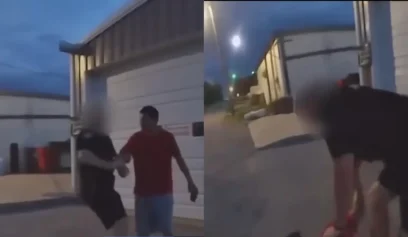If you’re a movie-minded person with a lot of movie-minded friends of Facebook, you might have noticed that some of them have put up solid green profile pictures in recent days. They do so in solidarity with the people in the visual effects field who are currently protesting against their treatment by Hollywood.
Nearly 500 people were picketing outside Hollywood & Highland this past Sunday during the Oscars, not that you would know it from the media coverage of the event. They were inspired to do so by the recent bankruptcy of Rhythm & Hues, the studio that won an Oscar that very night for its special effects work on Life of Pi.
Over the course of nearly two decades, R&H has done the effects for some hugely successful movies, and yet it’s struggling to stay afloat. Why? The answer lies in what these workers are fighting against. I’m terrible at understanding business practices and worse at explaining them, so I’ll let THR do the talking:
Some of the factors currently affecting the business include intense competitive bidding that lead to companies taking on projects at low, fixed bids; globalization as government incentives and cheap labor abroad has created an uneven playing field; and tight profit margins — often 5 percent or less — that can be endangered if a project is cancelled or delayed.
“Human beings are being put out of work to get these effects done at a dirt cheap rate,” said Tom Capizzi, who was among the artists that were recently let go from R&H. He had been with the VFX house since 1997. “It was a very abrupt layoff without pay. We had our health insurance dropped, so my kids don’t have heath insurance right now.”
“Increasingly, it’s becoming an industry where people work long hours, rates are dropping, benefits are not coming in, and you are expected to relocate,” [a] source added, pointing to his small child and saying “He’s been in three or four different schools because the work keeps moving around.”
VFX artists don’t feel any appreciation from the greater industry, certainly not the higher-ups. They’re seen as doing grunt work, as empty technicians rather than artists taking a vital role in the creation of the films they work on. These practices are an expression of this lack of respect, as studios just want their effects done cheaply and quickly, with quality a secondary concern.
Now it seems to have come to a head. If this protesting escalates, and VFX people decide to take drastic action, such as a strike, the repercussions on the business could be huge. I can’t deny that I would be interested to see what studios would do if they could no longer rely on digital prettiness to cover up lackluster storytelling. The optimist in me speculates that it might force them to concentrate more on story, but then the realist in me smacks the optimist upside the head and says it’s more likely that we’ll simply be seeing terrible scab FX work. Hopefully, it doesn’t come to that. The odds of the studio bosses suddenly growing a conscience and treating these workers better are slim, but we’ll see how this situation develops.


